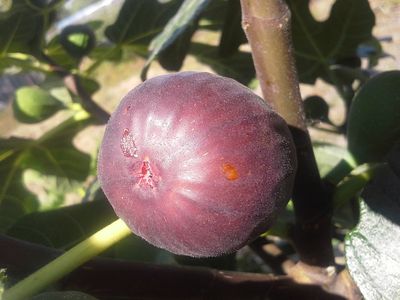What is a Hardy Chicago Fig?
Native to Sicily, hardy Chicago figs, as the name suggests, are the most cold tolerant fig trees available. This beautiful fig tree bears luscious, medium sized figs, which are produced on older wood in the early summer and fruit on new growth in the early fall. The ripe fruit is a dark mahogany contrasting with the characteristic three-lobed, green fig leaves. Also known as ‘Bensonhurst Purple,’ this tree can grow up to 30 feet (9 m.) in height or can be restrained to around 6 feet (2 m.). Chicago figs do well as container-grown trees and are drought tolerant once established. Fairly pest resistant as well, this fig can produce up to 100 pints (47 L.) of fig fruit per season and is easily grown and maintained.
How to Grow Chicago Hardy Fig Trees
All figs thrive in organically rich, moist, well-draining soil in full sun to partial shade. Chicago fig stems are hardy to 10 degrees F. (-12 C.) and the roots are hardy to -20 degrees F. (-29 C.). In USDA zones 6 to 7, grow this fig in a protected area, such as against a south-facing wall, and mulch around the roots. Also, consider providing additional cold protection by wrapping the tree. The plant may still show dieback during the cold winter but should be protected enough to rebound in the spring. In USDA zones 5 and 6, this fig can be grown as a low-growing shrub that is “laid down” in the winter, known as heeling in. This just means that the branches are bent over and covered with soil along with mounding soil over the main trunk of the tree. Chicago figs can also be container-grown and then moved indoors and overwintered in a greenhouse, garage, or basement. Otherwise, growing the hardy Chicago fig requires little maintenance. Just be sure to water regularly throughout the growing season and then reduce watering in the fall prior to dormancy.
